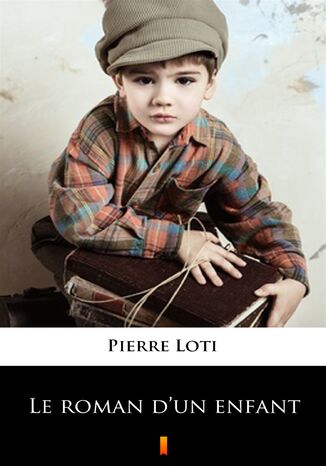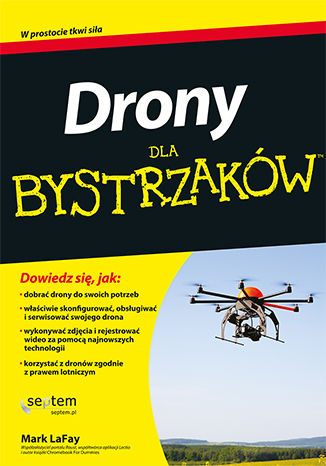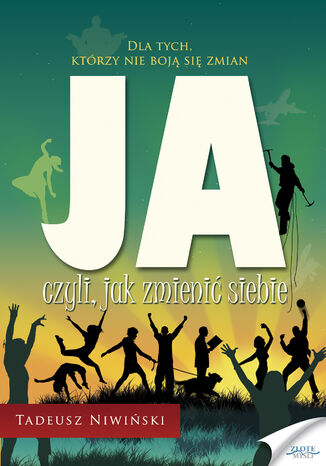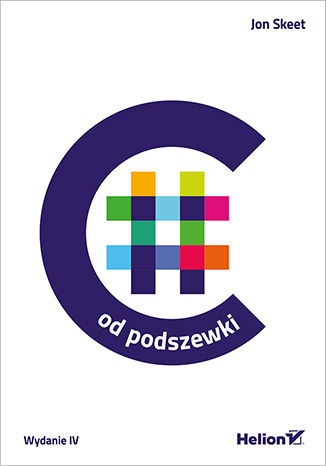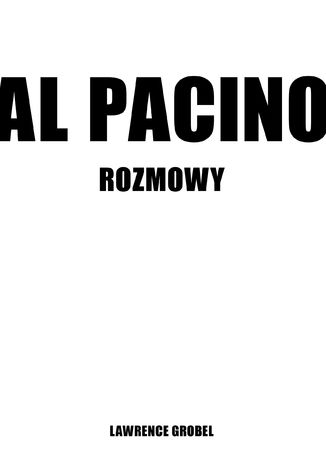Categories
Ebooks
-
Business and economy
- Bitcoin
- Businesswoman
- Coaching
- Controlling
- E-business
- Economy
- Finances
- Stocks and investments
- Personal competence
- Computer in the office
- Communication and negotiation
- Small company
- Marketing
- Motivation
- Multimedia trainings
- Real estate
- Persuasion and NLP
- Taxes
- Social policy
- Guides
- Presentations
- Leadership
- Public Relation
- Reports, analyses
- Secret
- Social Media
- Sales
- Start-up
- Your career
- Management
- Project management
- Human Resources
-
For children
-
For youth
-
Education
-
Encyclopedias, dictionaries
-
E-press
- Architektura i wnętrza
- Health and Safety
- Biznes i Ekonomia
- Home and garden
- E-business
- Ekonomia i finanse
- Esoterecism
- Finances
- Personal finance
- Business
- Photography
- Computer science
- HR & Payroll
- For women
- Computers, Excel
- Accounts
- Culture and literature
- Scientific and academic
- Environmental protection
- Opinion-forming
- Education
- Taxes
- Travelling
- Psychology
- Religion
- Agriculture
- Book and press market
- Transport and Spedition
- Healthand beauty
-
History
-
Computer science
- Office applications
- Data bases
- Bioinformatics
- IT business
- CAD/CAM
- Digital Lifestyle
- DTP
- Electronics
- Digital photography
- Computer graphics
- Games
- Hacking
- Hardware
- IT w ekonomii
- Scientific software package
- School textbooks
- Computer basics
- Programming
- Mobile programming
- Internet servers
- Computer networks
- Start-up
- Operational systems
- Artificial intelligence
- Technology for children
- Webmastering
-
Other
-
Foreign languages
-
Culture and art
-
School reading books
-
Literature
- Antology
- Ballade
- Biographies and autobiographies
- For adults
- Dramas
- Diaries, memoirs, letters
- Epic, epopee
- Essay
- Fantasy and science fiction
- Feuilletons
- Work of fiction
- Humour and satire
- Other
- Classical
- Crime fiction
- Non-fiction
- Fiction
- Mity i legendy
- Nobelists
- Novellas
- Moral
- Okultyzm i magia
- Short stories
- Memoirs
- Travelling
- Narrative poetry
- Poetry
- Politics
- Popular science
- Novel
- Historical novel
- Prose
- Adventure
- Journalism, publicism
- Reportage novels
- Romans i literatura obyczajowa
- Sensational
- Thriller, Horror
- Interviews and memoirs
-
Natural sciences
-
Social sciences
-
School textbooks
-
Popular science and academic
- Archeology
- Bibliotekoznawstwo
- Cinema studies
- Philology
- Polish philology
- Philosophy
- Finanse i bankowość
- Geography
- Economy
- Trade. World economy
- History and archeology
- History of art and architecture
- Cultural studies
- Linguistics
- Literary studies
- Logistics
- Maths
- Medicine
- Humanities
- Pedagogy
- Educational aids
- Popular science
- Other
- Psychology
- Sociology
- Theatre studies
- Theology
- Economic theories and teachings
- Transport i spedycja
- Physical education
- Zarządzanie i marketing
-
Guides
-
Game guides
-
Professional and specialist guides
-
Law
- Health and Safety
- History
- Road Code. Driving license
- Law studies
- Healthcare
- General. Compendium of knowledge
- Academic textbooks
- Other
- Construction and local law
- Civil law
- Financial law
- Economic law
- Economic and trade law
- Criminal law
- Criminal law. Criminal offenses. Criminology
- International law
- International law
- Health care law
- Educational law
- Tax law
- Labor and social security law
- Public, constitutional and administrative law
- Family and Guardianship Code
- agricultural law
- Social law, labour law
- European Union law
- Industry
- Agricultural and environmental
- Dictionaries and encyclopedia
- Public procurement
- Management
-
Tourist guides and travel
- Africa
- Albums
- Southern America
- North and Central America
- Australia, New Zealand, Oceania
- Austria
- Asia
- Balkans
- Middle East
- Bulgary
- China
- Croatia
- The Czech Republic
- Denmark
- Egipt
- Estonia
- Europe
- France
- Mountains
- Greece
- Spain
- Holand
- Iceland
- Lithuania
- Latvia
- Mapy, Plany miast, Atlasy
- Mini travel guides
- Germany
- Norway
- Active travelling
- Poland
- Portugal
- Other
- Przewodniki po hotelach i restauracjach
- Russia
- Romania
- Slovakia
- Slovenia
- Switzerland
- Sweden
- World
- Turkey
- Ukraine
- Hungary
- Great Britain
- Italy
-
Psychology
- Philosophy of life
- Kompetencje psychospołeczne
- Interpersonal communication
- Mindfulness
- General
- Persuasion and NLP
- Academic psychology
- Psychology of soul and mind
- Work psychology
- Relacje i związki
- Parenting and children psychology
- Problem solving
- Intellectual growth
- Secret
- Sexapeal
- Seduction
- Appearance and image
- Philosophy of life
-
Religion
-
Sport, fitness, diets
-
Technology and mechanics
Audiobooks
-
Business and economy
- Bitcoin
- Businesswoman
- Coaching
- Controlling
- E-business
- Economy
- Finances
- Stocks and investments
- Personal competence
- Communication and negotiation
- Small company
- Marketing
- Motivation
- Real estate
- Persuasion and NLP
- Taxes
- Social policy
- Guides
- Presentations
- Leadership
- Public Relation
- Secret
- Social Media
- Sales
- Start-up
- Your career
- Management
- Project management
- Human Resources
-
For children
-
For youth
-
Education
-
Encyclopedias, dictionaries
-
E-press
-
History
-
Computer science
-
Other
-
Foreign languages
-
Culture and art
-
School reading books
-
Literature
- Antology
- Ballade
- Biographies and autobiographies
- For adults
- Dramas
- Diaries, memoirs, letters
- Epic, epopee
- Essay
- Fantasy and science fiction
- Feuilletons
- Work of fiction
- Humour and satire
- Other
- Classical
- Crime fiction
- Non-fiction
- Fiction
- Mity i legendy
- Nobelists
- Novellas
- Moral
- Okultyzm i magia
- Short stories
- Memoirs
- Travelling
- Poetry
- Politics
- Popular science
- Novel
- Historical novel
- Prose
- Adventure
- Journalism, publicism
- Reportage novels
- Romans i literatura obyczajowa
- Sensational
- Thriller, Horror
- Interviews and memoirs
-
Natural sciences
-
Social sciences
-
Popular science and academic
-
Guides
-
Professional and specialist guides
-
Law
-
Tourist guides and travel
-
Psychology
- Philosophy of life
- Interpersonal communication
- Mindfulness
- General
- Persuasion and NLP
- Academic psychology
- Psychology of soul and mind
- Work psychology
- Relacje i związki
- Parenting and children psychology
- Problem solving
- Intellectual growth
- Secret
- Sexapeal
- Seduction
- Appearance and image
- Philosophy of life
-
Religion
-
Sport, fitness, diets
-
Technology and mechanics
Videocourses
-
Data bases
-
Big Data
-
Biznes, ekonomia i marketing
-
Cybersecurity
-
Data Science
-
DevOps
-
For children
-
Electronics
-
Graphics/Video/CAX
-
Games
-
Microsoft Office
-
Development tools
-
Programming
-
Personal growth
-
Computer networks
-
Operational systems
-
Software testing
-
Mobile devices
-
UX/UI
-
Web development
-
Management
Podcasts
Pierre Loti parle de son enfance ici. Lenfance est pleine de tendresse, damitié et de secrets. Lenfance dun petit garçon pensif vivant dans un monde dirréalités, dans lequel léducation ne distrait pas, forme constamment mille rves grandioses et impossibles, mais grâce laquelle une double vocation se réveille...
Feature engineering is the most important step in creating powerful machine learning systems. This book will take you through the entire feature-engineering journey to make your machine learning much more systematic and effective.You will start with understanding your data—often the success of your ML models depends on how you leverage different feature types, such as continuous, categorical, and more, You will learn when to include a feature, when to omit it, and why, all by understanding error analysis and the acceptability of your models. You will learn to convert a problem statement into useful new features. You will learn to deliver features driven by business needs as well as mathematical insights. You'll also learn how to use machine learning on your machines, automatically learning amazing features for your data.By the end of the book, you will become proficient in Feature Selection, Feature Learning, and Feature Optimization.
Dans le roman Horace de George Sand, le personnage principal est confronté de nombreuses épreuves. Malheureusement, il ne tire pas une leçon juste de son expérience. Le protagoniste, passant dune romance douteuse, affichant ses idées avant-gardistes, un simple carriere, qui spécule sur ces idées.
W prostocie tkwi siła Dowiedz się, jak: dobierać drony do swoich potrzeb właściwie konfigurować, obsługiwać i serwisować swojego drona wykonywać zdjęcia i rejestrować materiały wideo za pomocą najnowszych technologii korzystać z dronów zgodnie z prawem lotniczym Poznaj najlepsze porady, dzięki którym kupisz drona dostosowanego do swoich potrzeb, skonfigurujesz go i przygotujesz się do odbycia swojego pierwszego lotu! Chcesz poznać świat bezzałogowych statków powietrznych? Ten zabawny i przystępny poradnik zawiera całą wiedzę niezbędną do rozpoczęcia przygody z dronami. Znajdziesz w nim profesjonalne porady dotyczące zakupu drona dostosowanego do swoich potrzeb, sposobów korzystania z bezzałogowych statków powietrznych i zachowywania się zgodnie z etykietą przyjętą przez społeczność użytkowników dronów, a także wielu innych spraw! Stąpaj twardo po ziemi — zmontuj i skonfiguruj swojego drona, sprawdź działanie dźwigni kontrolera zdalnego sterowania, zoptymalizuj ustawienia kamery i unikaj błędów, które początkujący użytkownicy popełniają jeszcze przed startem. Wznieś się w przestworza — zapoznaj się z poradami dotyczącymi najlepszych praktyk związanych ze startowaniem wewnątrz budynku, a także na otwartych przestrzeniach, latania w terenie zabudowanym, w nocy i przy niesprzyjających warunkach atmosferycznych. Rozwiń skrzydła — naucz się korzystać z kontrolera zdalnego sterowania i poznaj tajniki sterowania za pomocą urządzeń mobilnych. Skorzystaj z perspektywy lotu ptaka — skorzystaj z pełni możliwości wykonywania zdjęć i filmów za pomocą drona, naucz się je obrabiać, edytować i stabilizować za pomocą specjalistycznego oprogramowania. W książce znajdziesz: wskazówki, dzięki którym kupisz drona dopasowanego do swoich potrzeb wyjaśnienie funkcji poszczególnych elementów drona napisane łatwym do zrozumienia językiem zasady bezpiecznego korzystania z drona informacje o regulacjach prawnych i strefach, w których nie możesz latać swoim dronem listę czynności, które powinieneś wykonać przed rozpoczęciem lotu wskazówki dotyczące wyboru miejsca i czasu odbycia lotu opis sposobów stabilizacji obrazu najlepsze techniki obrabiania obrazów zarejestrowanych z perspektywy lotu ptaka listę dziesięciu rzeczy, których nie powinieneś robić ze swoim dronem
To nie jest typowy kryminał - choć są zwłoki, jest zagadka, jest policjant i jest nawet zaginiony dziennikarz śledczy lokalnej gazety. Kryminał jest tym przypadku tylko formą i środkiem. To nie jest powieść o toruńskich Żydach, zawłaszczeniu ich mienia, a tym bardziej powieść o torunianach i Toruniu, i ich bezwzględności. Bo ona mogła mieć miejsce w Toruniu i mieć miejsca nie musiała. W tej książce brakuje głównego bohatera. Tylko niektóre wątki nawiązują do prawdziwych wydarzeń. Większość to fikcja - to przede wszystkim poszukiwanie człowieka i jego miejsca na Ziemi, wśród rodziny, znajomych, przyjaciół, na ulicy, na klatce schodowej lub w mętnej wiślanej wodzie i zastygłym spojrzeniu topielca.
Tadeusz Niwiński, poważany autor nagradzanych dzieł o sukcesie życiowym, w 1993 r. postanowił, że napisze książkę skierowaną do wszystkich tych, którzy czują, że stać ich w życiu na więcej. Każdy, kto kiedykolwiek zadawał sobie pytania: Po co ja żyję?, Czego oni wszyscy ode mnie chcą? czy też Dlaczego mi się nie udaje?, znalazł na nie odpowiedzi w publikacji pana Tadeusza. Szczęśliwcy, którzy sięgnęli po tę lekturę, odkryli w sobie niedostrzeżone wcześniej możliwości. Dzisiaj i Ty możesz zapoznać się z pierwszą polską publikacją motywacyjną, cieszącą się uznaniem już 20 lat, opartą na polskich realiach, skierowaną do Polaków i napisaną przez Polaka! UWAGA: Do tej pory sprzedało się ponad 50 tysięcy sztuk tej książki! Dziś, po raz pierwszy w Polsce, publikacja JA Tadeusza Niwińskiego dostępna jest, oprócz ebooka, także w wersji audio - tylko w naszym wydawnictwie! Zapoznaj się z najbardziej pożądaną i polecaną lekturą. POSŁUCHAJ o tym, na co naprawdę Cię stać, o Twoim prawdziwym JA! Publikacja JA Tadeusza Niwińskiego polecana jest jako lektura obowiązkowa przez wielu uznanych nauczycieli rozwoju osobistego (między innymi przez Iwonę Majewską-Opiełkę).
C# liczy sobie około dwudziestu lat. Jest niestrudzenie rozwijany i doskonalony przez Microsoft, a dzięki swojej wszechstronności znajduje zastosowanie w wielu dziedzinach: pisaniu gier komputerowych, tworzeniu skalowalnych i niezawodnych aplikacji internetowych oraz aplikacji mobilnych, a nawet niskopoziomowym programowaniu komponentów większych systemów. Twórcy C# postawili na obiektowość, ścisłą kontrolę typów, a przede wszystkim na prostotę w stosowaniu. W tym celu wykorzystano wyniki badań akademickich i połączono je z praktycznymi technikami rozwiązywania problemów. W efekcie C# stał się ulubionym językiem profesjonalistów. To czwarte wydanie podręcznika przeznaczonego dla programistów C#, którzy znają podstawy tego języka, jednak zależy im na dogłębnym zrozumieniu ważnych pojęć i przyswojeniu różnych sposobów myślenia o pozornie znanych zagadnieniach. W książce skrótowo opisano wersje C# od 2 do 5, a wyczerpująco omówiono wersje od 6 do 7.3. Zaprezentowano również niektóre informacje o projektowanych nowych elementach języka C# 8, takich jak typy referencyjne przyjmujące wartość null, wyrażenia switch, usprawnienia dopasowywania wzorców, a także dalsza integracja asynchroniczności z podstawowymi mechanizmami języka. Poszczególne treści zilustrowano licznymi przykładami kodu źródłowego. W tej książce między innymi: wyrażenia lambda, inicjalizatory zapytań, asynchroniczność składowe z ciałem w postaci wyrażenia zaawansowane techniki pracy z ciągami znaków zagadnienia integracji krotek z językiem dekonstruktory i dopasowywanie wzorców nowe techniki stosowania referencji i powiązanych mechanizmów C#. Programowanie na najwyższym poziomie!
Autobiografia kultowego aktora, w formie rozmowy z Lawrencem Grobelem wywiady z lat 1979-2005. "Ojciec Chrzestny", "Człowiek z Blizną", "Adwokat Diabła" - te role i wiele innych zapewniły Pacino trwałe miejsce w historii kina. Osiem razy nominowany do Oskara – nagrodę otrzymał w końcu za rolę w "Zapachu Kobiety". Mimo to wciąż woli pracę na deskach teatru od pracy w studio filmowym, kocha Szekspira, chętnie zajmuje się produkcjami niezależnymi. Jego życie pełne jest pasji, a największą miłością pozostaje teatr. Pacino zawsze uciekał od rozmów z prasą – dla Grobela zrobił wyjątek. W ciągu ponad dwudziestu pięciu lat Al Pacino udzielał mu wielokrotnie wywiadów – przez lata zawiązała się pomiędzy nimi bliska przyjaźń. Rozmawiali oczywiście o filmach, pracy nad kolejnymi rolami, ale też o dzieciństwie aktora, jego prywatnym życiu i rodzinie. Grobel i Pacino pozostawiają tylko parę tematów tabu, mówią szczerze niemal o wszystkim: nocnych espadach do klubów jazzowych; garściach Valium połykanych na ceremonii rozdania Oskarów; o miłości do Nowego Jorku i uzależnieniu od alkoholu. W rozmowach maluje się obraz wrażliwego człowieka ogarniętego aktorską pasją, ceniącego wyżej sztukę niż gwiazdorskie splendory. Książka „Al Pacino” to wnikliwe spojrzenie na życie artysty, skupionego bardziej na procesie tworzenia roli niż na owocach wielkiej kariery; to opowieść o kreatywnym geniuszu u szczytu swych artystycznych możliwości. Książka zawiera filmografię, obszerne komentarze autora dopełniające każdy wywiad, polską przedmowę autorstwa Ernesta Brylla oraz niepublikowane dotąd zdjęcia prywatne.

